The drug development process is a time-consuming and expensive endeavor that often involves a significant amount of trial and error. However, the use of artificial intelligence (AI) and machine learning in drug development has revolutionized the industry, making the process more efficient and cost-effective. AI-powered tools can help researchers to analyze vast amounts of data, identify promising drug targets, and optimize drug candidates, ultimately leading to more effective therapies with fewer side effects.
In this blog, we will explore some of the best AI tools currently available for drug development. From machine learning algorithms that predict the efficacy and toxicity of drug candidates to virtual screening platforms that can simulate drug interactions at the molecular level, we will discuss the latest innovations in AI that are transforming the pharmaceutical industry. Whether you are a researcher, a drug developer, or simply interested in the latest advancements in AI technology, this blog will provide a comprehensive overview of the cutting-edge tools being used to develop the next generation of life-saving medications.
IBM Watson Discovery for Drug Discovery

IBM Watson Discovery for Drug Discovery is an AI tool that utilizes machine learning algorithms to accelerate drug discovery and development. It allows researchers to sift through massive amounts of scientific literature, patents, and clinical trials to find relevant information related to their research. The tool can extract key concepts, entities, and relationships from unstructured data and organize them into structured data, making it easier for researchers to identify promising targets and biomarkers for drug development. IBM Watson Discovery also offers natural language processing capabilities, enabling researchers to ask complex questions and receive relevant answers quickly and accurately.
Pros
Cons
Overall Rank
Atomwise for Drug Design

Atomwise is a leading AI-based drug discovery company that employs deep learning neural networks to enhance the drug discovery process. The company's AI-powered platform allows for the identification of potential drug candidates with a higher level of accuracy and efficiency than traditional methods. Atomwise's technology can simulate millions of compounds and their potential interactions with targeted proteins, allowing researchers to identify promising leads for drug development. The company has partnered with numerous organizations, including Merck, Eli Lilly, and AbbVie, and has a portfolio of successful collaborations in discovering potential treatments for diseases like Ebola, multiple sclerosis, and cancer. With its innovative technology and successful track record, Atomwise is transforming the field of drug discovery and has the potential to revolutionize the pharmaceutical industry.
Pros
Cons
Overall Rank
Insilico Medicine for Drug Discovery
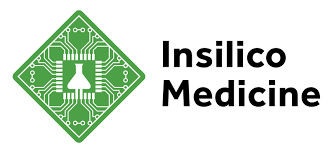
Insilico Medicine is a cutting-edge AI tool that uses deep learning algorithms to facilitate drug discovery and development. By analyzing vast amounts of data and predicting molecular properties, Insilico Medicine aims to expedite the process of identifying promising drug candidates and reduce the cost of bringing new drugs to market. Its capabilities include target identification, lead generation, and optimization of drug candidates, as well as predicting the pharmacokinetics and toxicity of potential drugs. With the help of Insilico Medicine, drug discovery can become a faster and more efficient process, ultimately leading to the development of novel therapies for a variety of diseases.
Pros
Cons
Overall Rank
Cyclica for Drug Discovery

Cyclica is an innovative AI tool for drug discovery that uses a proprietary algorithm to predict the interactions between small molecules and proteins. The technology is based on a systems-level approach that takes into account multiple factors, such as the 3D structure of the molecules, their physicochemical properties, and the biological pathways they affect. Cyclica's platform is designed to identify new drug candidates and optimize existing ones by simulating their behavior in biological systems, allowing for a faster and more cost-effective drug development process. By combining machine learning, network analysis, and other advanced techniques, Cyclica is able to provide a comprehensive understanding of the molecular mechanisms underlying disease and drug action.
Pros
Cons
Overall Rank
BioSymetrics for Drug Discovery

BioSymetrics is a drug discovery AI tool that aims to accelerate the drug discovery process by analyzing large amounts of data and providing insights for researchers. The platform uses advanced machine learning algorithms to process diverse datasets, including genomics, proteomics, and clinical data, to help identify potential drug targets, predict drug efficacy, and design novel molecules. BioSymetrics' technology can also assist in identifying patient subpopulations that may benefit most from a particular drug, allowing for more personalized treatments. With its ability to integrate data from various sources and provide meaningful insights, BioSymetrics has the potential to revolutionize drug discovery and improve patient outcomes.
Pros
Cons
Overall Rank
Numerate for Drug Design

Numerate for Drug Design is an AI tool that uses machine learning algorithms to predict the effectiveness of potential drug candidates before they are synthesized and tested in the lab. The tool relies on a vast library of chemical structures, biological data, and experimental results to generate novel drug molecules with improved properties, such as increased potency and selectivity, and reduced toxicity. Numerate for Drug Design can rapidly screen millions of compounds, significantly reducing the time and cost required to develop new drugs. Additionally, the tool can optimize existing drug molecules, making them more effective and reducing the likelihood of resistance. Overall, Numerate for Drug Design has the potential to revolutionize the drug discovery process, helping researchers to identify safer and more effective treatments for a range of diseases.
Pros
Cons
Overall Rank
XtalPi for Drug Discovery
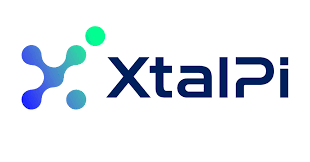
XtalPi is a cutting-edge AI-based tool that is revolutionizing the field of drug discovery. The software employs a unique combination of artificial intelligence, quantum mechanics, and cloud computing to simulate the behavior of small molecules, predict their properties and interactions with biological targets, and ultimately facilitate the design of new drugs. By leveraging the power of big data and machine learning algorithms, XtalPi offers accurate and reliable predictions of a drug candidate's safety, efficacy, and manufacturability, reducing the time and costs associated with traditional drug discovery methods. Moreover, the software's user-friendly interface and customizable workflows enable researchers to tailor their experiments to specific needs and achieve faster and more accurate results.
Pros
Cons
Overall Rank
Envisagenics for RNA Analytics
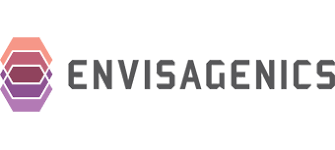
Envisagenics is a biotech startup that has developed an innovative AI-based tool for RNA analytics. The tool utilizes machine learning algorithms to analyze RNA sequencing data and provides researchers with valuable insights into gene expression patterns. The software can help scientists understand how genetic mutations affect gene expression, identify potential drug targets, and even predict disease outcomes. Envisagenics' RNA analytics AI tool can be used in a wide range of applications, from drug discovery to personalized medicine. Its ability to quickly process large amounts of data and generate accurate predictions makes it a powerful asset for any research team.
Pros
Cons
Overall Rank
BenchSci for Literature Search

BenchSci is an innovative AI tool that simplifies literature search in life sciences. The platform utilizes machine learning algorithms to extract and analyze data from millions of scientific papers, making it easier for researchers to quickly find relevant information for their experiments. BenchSci uses advanced natural language processing techniques to identify key findings, such as experimental methods, results, and figures, and presents them in an organized and easy-to-understand format. The tool's unique features, such as the ability to filter results by experimental conditions, make it a valuable resource for scientists seeking to accelerate their research.
Pros
Cons
Overall Rank
Cloud Pharmaceuticals for Drug Design
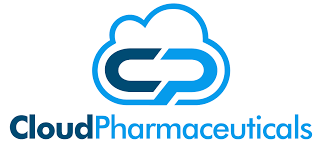
Cloud Pharmaceuticals is a drug design AI tool that uses artificial intelligence to accelerate drug discovery and development processes. Their technology is based on a deep understanding of molecular biology, chemistry, and physics. It combines machine learning, quantum mechanics, and computational methods to predict the efficacy of potential drug candidates in silico, before they are synthesized and tested in the lab. This approach can save time and resources and increase the success rate of drug development. Moreover, Cloud Pharmaceuticals' platform is cloud-based, which means it is accessible from anywhere in the world, making it convenient for researchers and pharmaceutical companies to collaborate remotely and share data securely.
Pros
Cons
Overall Rank
Acellera for Molecular Dynamics Simulation

Acellera is a cutting-edge AI tool for molecular dynamics simulations that provides remarkable speed and accuracy in predicting the behavior of molecules. It employs advanced algorithms and machine learning techniques to simulate the movement and interaction of molecules in a complex biological system, allowing researchers to make crucial predictions about the potential impact of new drugs or the behavior of a protein. One of the most significant advantages of Acellera is its cloud-based architecture, which enables users to access its powerful computing resources from anywhere in the world. Moreover, it has a user-friendly interface that simplifies the process of running simulations, allowing even non-experts to analyze complex systems easily.
Pros
Cons
Overall Rank
BenevolentAI for Drug Discovery
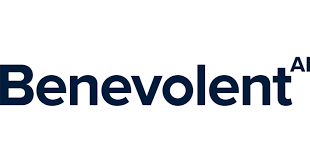
BenevolentAI is a drug discovery AI tool that utilizes artificial intelligence and machine learning to revolutionize the drug discovery process. It enables scientists to quickly analyze vast amounts of medical data and identify potential drug targets that would have been difficult or impossible to identify through traditional research methods. BenevolentAI's platform also allows for the identification of new drug candidates, enabling faster and more efficient drug development. Additionally, the technology can be used to optimize clinical trials and improve patient outcomes by analyzing patient data and identifying potential treatment options. With its ability to accelerate drug discovery and improve patient outcomes, BenevolentAI is a promising tool in the fight against diseases and improving global health.
Pros
Cons
Overall Rank
Owkin for Medical Research
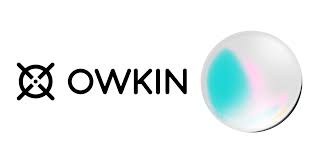
Owkin is a medical research AI tool that is revolutionizing the healthcare industry by combining machine learning algorithms with medical expertise to provide efficient and accurate medical solutions. Owkin's unique platform enables data scientists and medical experts to collaborate and analyze large-scale medical data sets, leading to the development of novel therapeutic strategies and diagnostic tools. The platform employs advanced machine learning techniques, including deep learning, to analyze complex data sets, enabling researchers to uncover insights that would otherwise be difficult or impossible to detect using traditional statistical methods. Owkin's technology has already led to groundbreaking discoveries in the fields of oncology and neuroscience and has the potential to transform medical research and improve patient outcomes in many other areas of medicine.
Pros
Cons
Overall Rank
Healx for Rare Disease Treatment

Healx is a rare disease treatment AI tool that leverages machine learning algorithms to discover new drug candidates for rare diseases. The platform integrates multiple data sources, including scientific literature and gene expression data, to identify potential drug targets and predict the efficacy of different compounds. The tool's AI algorithms analyze the information to predict drug combinations that could offer a treatment for rare diseases, reducing the time and costs of traditional drug development methods. Healx's rare disease treatment AI tool is a valuable addition to the field of drug discovery, especially for rare diseases that often go untreated due to a lack of resources and attention from pharmaceutical companies.
Pros
Cons
Overall Rank
Recursion Pharmaceuticals for Drug Discovery

Recursion Pharmaceuticals is a drug discovery company that uses artificial intelligence to develop new treatments for diseases. Their platform involves the use of machine learning to analyze large datasets of biological information in order to identify potential drug targets. By doing so, they are able to accelerate the drug discovery process and bring new treatments to patients faster. One key advantage of Recursion's approach is that it allows them to identify drugs that would otherwise have been overlooked using traditional methods. This is particularly important for rare diseases, where there may be limited information available on potential drug targets. Overall, Recursion's use of AI in drug discovery has the potential to revolutionize the pharmaceutical industry and improve patient outcomes.
Pros
Cons
Overall Rank
Simulations Plus for Pharmacokinetics Modeling
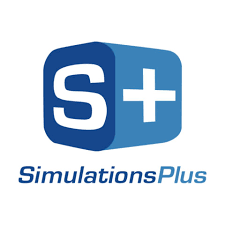
Simulations Plus is a leading software company that provides AI-based pharmacokinetics modeling tools for pharmaceutical and biotech industries. Their flagship product, GastroPlus, is a simulation software used for the prediction of drug absorption, distribution, metabolism, and elimination in the human body. This software can be used in drug discovery and development to predict the efficacy and safety of potential drugs, reducing the time and costs associated with clinical trials. Moreover, their AI-based tools allow for the optimization of drug formulations and dosage, resulting in improved drug delivery and patient outcomes. With over 30 years of experience in the industry and a wide range of clients including government agencies, academic institutions, and pharmaceutical companies, Simulations Plus is a trusted name in the field of pharmacokinetics modeling.
Pros
Cons
Overall Rank
Schrodinger for Molecular Design

Erwin Schrodinger was an Austrian physicist who made significant contributions to the development of quantum mechanics, particularly in the area of wave mechanics. His famous equation, the Schrodinger equation, is used extensively in the field of molecular modeling and design to calculate the behavior of atoms and molecules. This equation is essential for understanding the electronic structure of molecules, including their geometry, spectroscopic properties, and reactivity. The Schrodinger equation is the basis for many computational chemistry tools, such as molecular dynamics simulations and quantum chemical calculations, that are used to design new drugs, materials, and chemical reactions. Without Schrodinger's contributions, molecular design AI tools would not be as accurate or as useful in predicting the properties of molecules and materials.
Pros
Cons
Overall Rank
GNS Healthcare for Precision Medicine

GNS Healthcare is a Precision Medicine AI tool that uses advanced machine learning algorithms to analyze large-scale clinical and molecular data to predict patient outcomes and develop personalized treatment plans. The platform integrates diverse data types such as genomics, electronic medical records, and health claims data to generate patient-specific disease models. This enables physicians to identify and target the underlying mechanisms of disease and develop personalized interventions that improve patient outcomes. By leveraging artificial intelligence to analyze complex data sets, GNS Healthcare provides a powerful tool to advance precision medicine and transform patient care.
Pros
Cons
Overall Rank
Verge Genomics for Drug Discovery
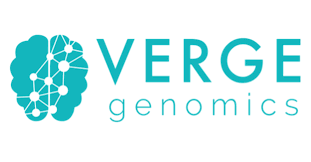
Verge Genomics is an AI-powered drug discovery tool that utilizes cutting-edge machine learning algorithms to accelerate the development of new treatments for diseases such as Alzheimer's, Parkinson's, and ALS. By analyzing large amounts of genomic and clinical data, Verge Genomics can identify potential drug targets and predict how specific drugs will interact with these targets, helping researchers to prioritize the most promising candidates for further investigation. This platform is designed to streamline the drug discovery process, which traditionally involves a considerable amount of trial and error, and it has the potential to significantly reduce the time and costs associated with bringing new drugs to market.
Pros
Cons
Overall Rank
PathAI for Pathology Image Analysis
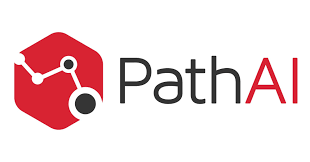
PathAI is an AI-powered pathology image analysis tool that is transforming the field of pathology by providing accurate and efficient diagnoses. The software uses deep learning algorithms to analyze large sets of pathology images and assist pathologists in making more informed diagnoses. PathAI's technology can detect patterns and features in tissue samples that may not be visible to the human eye, leading to earlier and more accurate diagnoses. By automating the analysis of pathology images, PathAI can improve the efficiency of diagnostic workflows, reducing the time and cost associated with diagnosis.
Pros
Cons
Overall Rank
In conclusion, the advancements in AI and machine learning have revolutionized the drug development process. The use of AI tools in drug discovery has the potential to significantly reduce the time and cost required for developing new drugs, while also improving the accuracy and efficacy of drug candidates. The AI tools discussed in this blog are just a few examples of the many innovative solutions available to pharmaceutical researchers today. Machine learning algorithms and predictive models enable researchers to analyze vast amounts of data, including genomic, proteomic, and chemical data, and make accurate predictions about the efficacy and toxicity of drug candidates. Additionally, AI-powered tools can also assist in identifying novel drug targets and optimizing drug dosages, which can ultimately lead to more effective therapies with fewer side effects. Overall, AI has opened up new opportunities for drug development and has the potential to transform the pharmaceutical industry in the years to come. As AI technologies continue to advance, we can expect to see even more innovative solutions emerge that will enable pharmaceutical companies to develop new drugs more efficiently and effectively than ever before.
